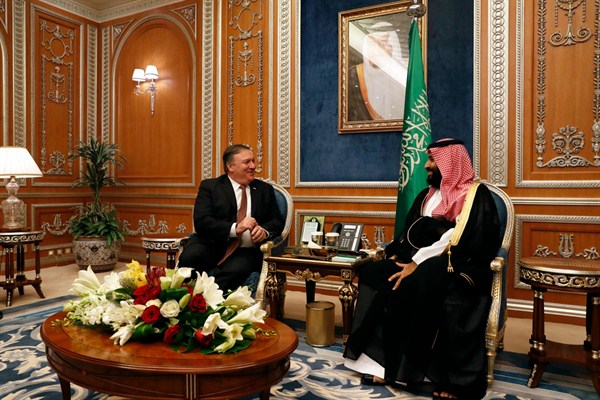The details of just how Jamal Khashoggi met his death in the Saudi consulate in Istanbul are still shrouded in mystery. Given the interests of all sides in covering up what really happened, those shadows are likely to linger even after an official story is concocted and a scapegoat sacrificed.
But Khashoggi’s death has already shed light on the level of corruption and rot at the heart of Washington’s ties with the Gulf Arab states. In many ways, this corruption is an old story. The outrage theater currently on display in Washington and corporate boardrooms across the U.S. is as credible as the Saudi denials over the past 15 days that Khashoggi left the Istanbul consulate alive, and that the Saudi leadership played no role in his murder.
The Saudis are now reportedly preparing to revise that storyline, admitting Khashoggi’s death but framing it as the unintentional result of an interrogation gone wrong. In Washington, there is similarly a lot of chatter about revising the storyline guiding U.S.-Saudi ties to hold Riyadh accountable. The current outrage could very well result in token gestures toward reforms from the Saudi royal family. But it is easy to be cynical about the potential for long-term change in U.S. regional policy and Saudi Arabia’s role in it.

